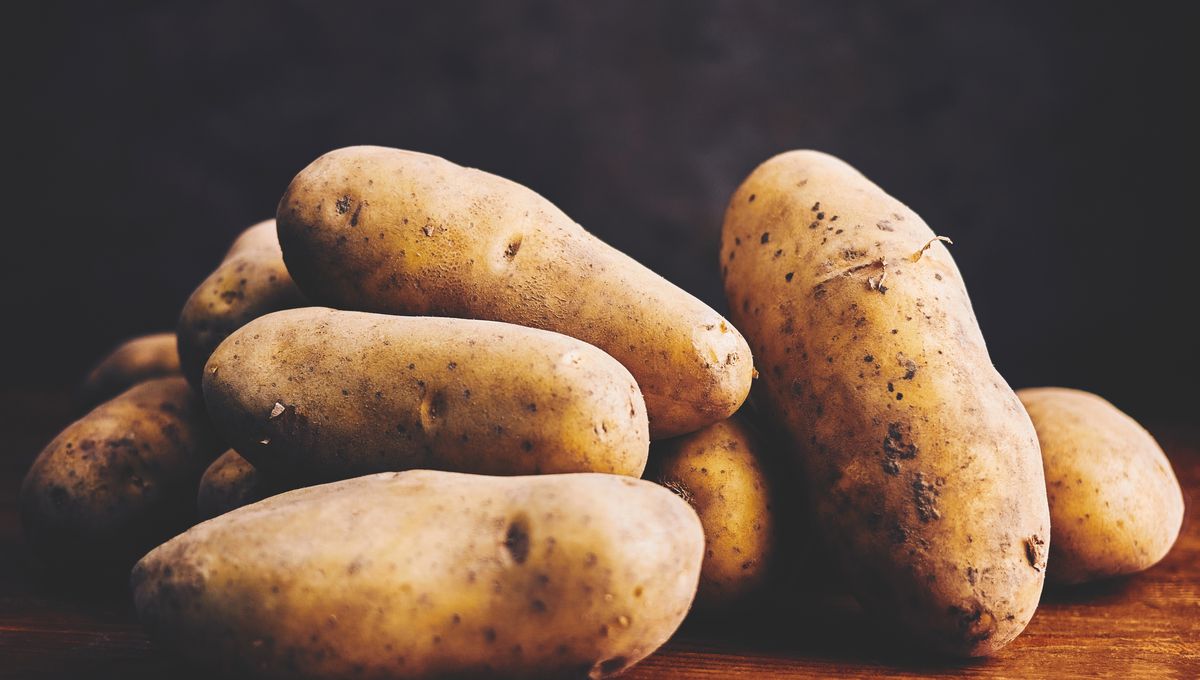
New research has made waves by drawing a link between eating potatoes and an increased risk of type 2 diabetes. There’s a lot to unpack here, and experts have been weighing in on the data – here’s what to know.
What the study concluded
The research included 205,107 adults enrolled in three large-scale studies of healthcare professionals in the US. A total of 22,299 diagnoses of type 2 diabetes were recorded during almost 40 years of follow-up.
As a quick reminder, all types of diabetes affect blood sugar regulation, but type 2 diabetes occurs when the body stops responding to the hormone insulin in the same way as before, or when the pancreas becomes less efficient at producing insulin. It’s usually diagnosed in midlife. Obesity is one of the risk factors, but not the only one – for example, some ethnicities are at greater risk.
This is very different from type 1 diabetes, an autoimmune condition in which the pancreas doesn’t function effectively, requiring lifelong insulin supplementation through injections or an insulin pump.
In this study, after adjusting for other lifestyle and dietary factors associated with diabetes risk, potato intake emerged as a factor that was positively associated with diabetes – i.e., the more potatoes someone consumed, the greater their risk of developing type 2 diabetes.
But it wasn’t quite that simple. What the data showed was that how you consume your potatoes is very important. Specifically, the authors wrote, “This association was primarily driven by intake of French fries, whereas intake of baked, boiled, or mashed potatoes was not associated with [type 2 diabetes] risk.”
Eating three servings of French fries in a week was found to increase the risk by 20 percent. However, swapping out three servings of fries with whole grains each week was estimated to decrease the risk by 19 percent. This was calculated via two meta-analyses of previously published data, each involving over 500,000 participants across four continents.
Again, there’s some nuance here. The data did show that if you’re going to swap all your potatoes for another grain, it matters which grain you choose. Switching baked, boiled, and mashed potatoes for white rice was actually associated with an increased risk of type 2 diabetes.
“The public health message here is simple and powerful: Small changes in our daily diet can have an important impact on risk of type 2 diabetes,” said corresponding author and professor of epidemiology and nutrition Walter Willett in a statement.
“Not all carbs – or even all potatoes – are created equal, and that distinction is crucial when it comes to shaping effective dietary guidelines.”
What experts have said about the study
It’s fair to say it wasn’t the best news for French fry lovers – which is to say, basically everyone. But it also probably didn’t come as a total surprise, as most of us realize – even as we tuck into a plate of potato perfection – that fries aren’t the most nutrient-dense option. Plenty of studies in the past have linked different foods and diets to the risk of developing type 2 diabetes.
It’s encouraging, though, that not all cooking methods appear to be associated with the same health risks. As pointed out by Daniel B Ibsen and Yanbo Zhang in an accompanying editorial, potatoes are an environmentally sustainable crop, so there’s a lot of value in continuing to include them in our diets, “though whole grains should remain a priority.”
However, it’s important to understand exactly what we can and can’t conclude from this research. In a statement on the work, it was highlighted that this study is observational, “so no firm conclusions can be drawn about cause and effect.”
There could have been other factors at play that were not included – it’s not enough to say for certain that eating three servings of fries per week definitely caused someone to develop type 2 diabetes where they would not have otherwise.
“The data collection method used in this study makes it difficult to accurately assess the impact of the amount of carbohydrate foods eaten, which is also a significant factor in type 2 diabetes risk,” commented dietitian Dr Ruth Boocock of Teeside University, who was not involved in the study, in a statement to Science Media Centre (SMC).
The cohort was also composed of healthcare workers, most of whom had European ancestry, so the results may not be generalizable to other populations.
That’s not to say the data should be thrown out, though. These types of studies are still useful and important.
“The study is rigorous and well designed. Although it cannot prove causality, it provides valuable and already known evidence that supports current recommendations to prioritize whole grains and limit fried foods,” explained Cristóbal Morales, a specialist in endocrinology and nutrition at Vithas Sevilla Hospital, to the Spanish SMC.
Leaving the actual numbers aside, the message at the heart of this study is very similar to what we hear from nutrition scientists all the time: prioritize minimally processed foods where possible and aim for a balanced diet without too much emphasis on one food group. Eating multiple servings of fries per week is likely not a great idea for your overall health.
But if you’re particularly concerned about type 2 diabetes, and potatoes are a staple in your diet, it’s perhaps helpful to know that simply making a switch to a different cooking method might be enough to offset some of the health risks.
As lead author Seyed Mohammad Mousavi summarized, “We’re shifting the conversation from, ‘Are potatoes good or bad?’ to a more nuanced – and useful – question: How are they prepared, and what might we eat instead?”
The study is published in the BMJ.
Source Link: Heard Potatoes Increase Your Risk Of Type 2 Diabetes? Here’s What The Science Says